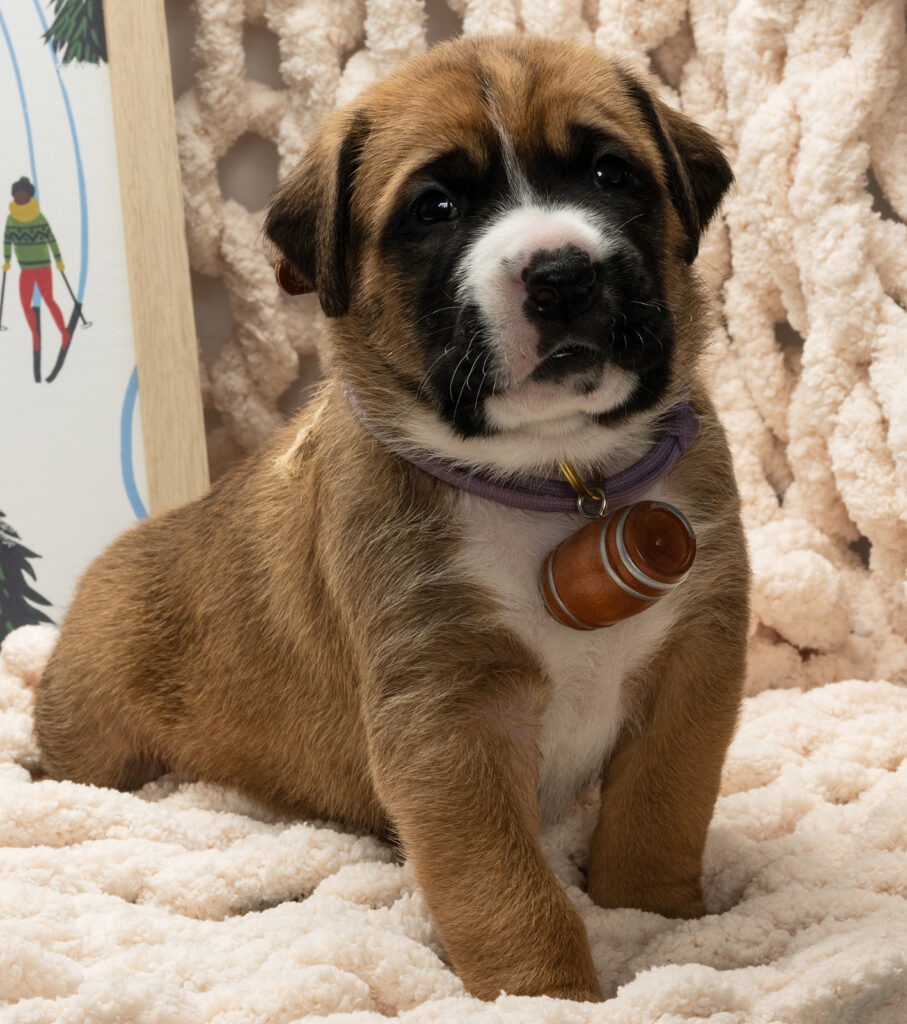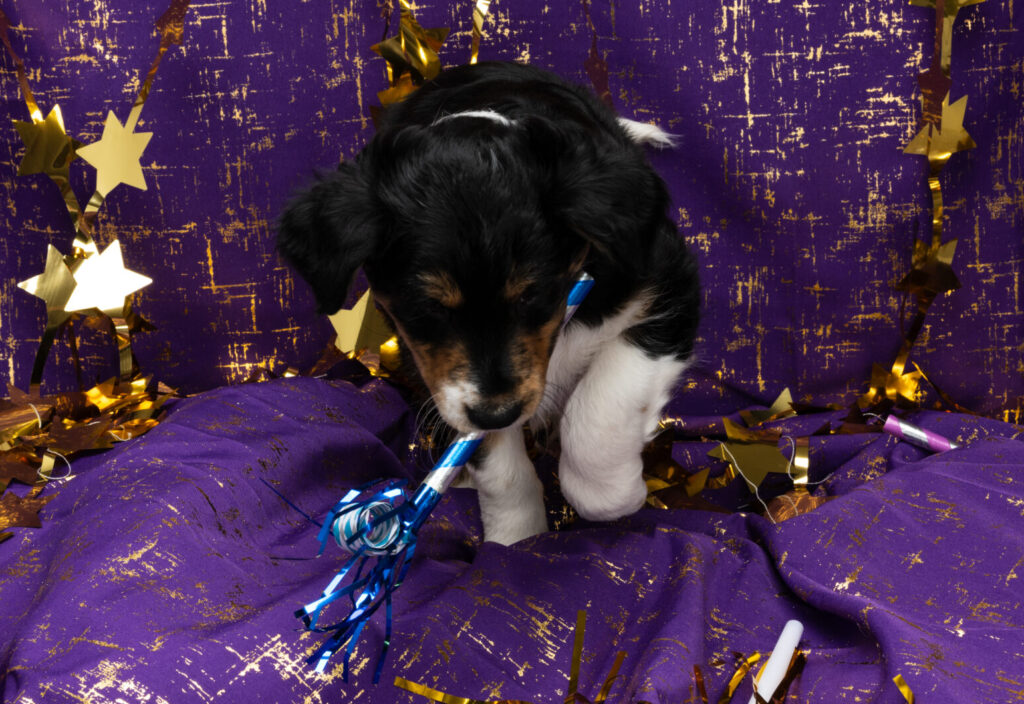During the Transitional Stage and for part of the Socialization Stage, anyone working with puppies under eight weeks should work on building a foundation for basic manners for their puppies and setting expectations for proper interactions with their world. Note, this is not formal obedience training where behaviors are paired with commands.
Building this foundation for later training is especially important in puppies aged three to seven-weeks, who are often in the care of a breeder, shelter, or foster before going on to be adopted by their forever family. It sets them up for success in their future homes and will make it easier to start formal obedience training.

Don’t Encourage Behaviors You Wouldn’t Want Later
Just about everything puppies do is cute but that doesn’t mean that we should encourage bad behaviors! Common behaviors that are cute in a wee pup but are often problematic in adult dogs include: jumping on people (or objects), whining for attention, and mouthiness.
When puppies try to get our attention early on, they may do so by jumping up on our legs or whining to be pet, and while it is absolutely adorable when they’re pocket-sized, these are not behaviors we want in our adult companions.
As an adult dog, jumping can be harmful, especially with smaller children and the elderly. Remember, it is less about pairing the desired behavior with a command (like “off” or “down”) at this stage. Instead, we simply do not give them the attention they’re seeking when they jump on us and wait for them to stand or sit before petting or giving them what they want.

Instead, we can try and wait for our pups to offer a sit or an off, naturally, and give them what they want (attention, petting, picking them up, food, and so on). We are not training the command “sit” formally, but we are encouraging them to sit rather than jump, circle, or whine. This is something that is particularly easy to work on before setting down a pup’s food by waiting until they’ve sat (even if only for a second or two!).

Redirecting and Gentling Mouthiness
It is critical for early caretakers to redirect the mouthiness puppies experience as they go through teething stages to appropriate chew toys. We want to encourage them to chew on the right things by giving it to them in the moment. Whenever a puppy starts to chew on something undesirable, whether that’s your hand or the furniture, give them a toy that they can chew on instead.
Similarly, if a puppy mouths a human, they should learn to be as gentle as possible. This can be accomplished by only saying “ow!” or redirecting mouthiness when a puppy’s teeth put pressure on the skin. Some breeds can be taught to be so gentle that they can carry an egg in their mouths without breaking it!
Most puppies are ready for formal obedience training by eight weeks of age, which is when you can pair a command with a desired behavior, like “sit” and “off.” Until then, we focus on discouraging bad behaviors and encouraging good behaviors to build a good foundation before formal obedience!






